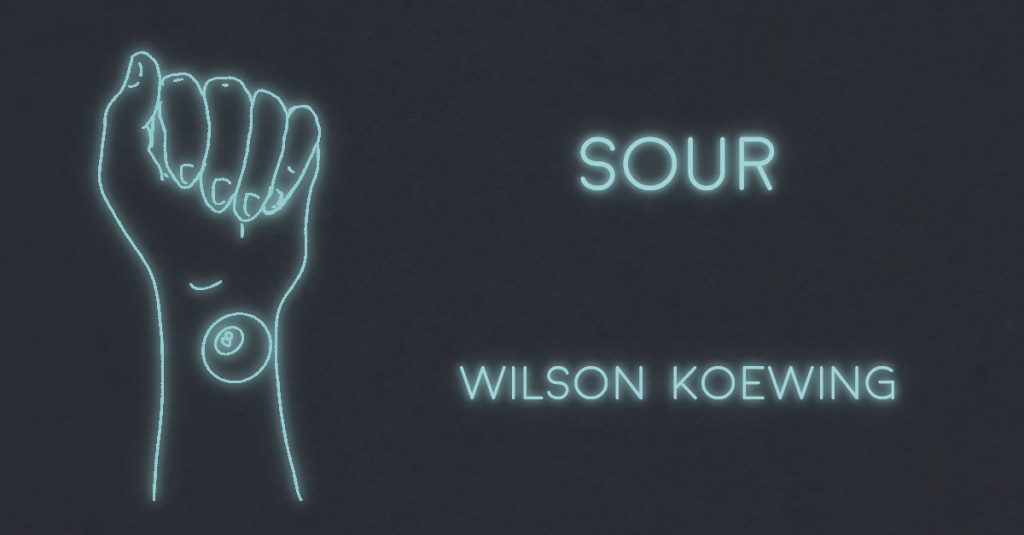To escape the midsummer heat, I ducked inside a bar specializing in sour beers on the fringes of Five Points in Denver. I ordered from the happy hour menu, drank sour pours then had my debit card declined.
“I tried it nine times,” the shaggy hair bartender said.
“Try it again.”
“Won’t go through.”
“I don’t know what to tell you.”
Another bartender, one of those effortlessly beautiful women who always seem marooned in restaurants, came over.
“Nice ink,” I said, noticing an eight ball on her wrist.
“Do you have another card?” she asked.
“I don’t,” I said. “Where do you play?
“Tarantulas.”
“Well, something has to give,” the shaggy hair bartender said, crossing his arms.
She leaned close, “If I cover this, can you Venmo me in a couple days?”
“Sure,” I said. “I could do that.”
She wrote her Venmo name on a ticket.
Outside, I smoked on the sidewalk under the late afternoon sun.
It wasn’t so much that I was poor, it was more that I didn’t work. My folks sent money sometimes and if they didn’t, I lived modest, rode couches and occasionally ate meals I wasn’t certain I could pay for.
Almost everyone who lived downtown were millennials, working for startups or dispensaries or in the service industry saving for ski bum winters. Either that or virus fired, so nobody cared if you were broke. The prevailing belief was we wouldn’t always be. If you could get in with the right people, asking if you could Venmo later was better than credit.
I went inside a liquor store up the street. I assumed I had some money on my card, just not enough for the tab.
The card ran.
I exited with a pint of tequila. A guy passed by, down on his luck, and asked for a smoke. I gave him one and offered the pint.
“Nah,” he said. “Gave up drinking.”
“What’s your story?”
“Man…”
“How many cigarettes for you to tell me your story?”
He clasped his hands behind his head and cut down an alley growing smaller and smaller as he went. I tucked the tequila in my pocket and headed toward downtown.
Denver was beautiful at dusk. The buildings appeared rusted in front of the sky.
When the sun slid behind the Rockies it bathed the front range in hard shadow creating, for about twenty minutes, a soft half-light that made the city feel quiet and surreal.
I passed through the tent town on Stout. I had friends who lived there. They weren’t bums but were considered as such. Really, they were burnt out on the bullshit.
Hundreds of tents lined the sidewalks. Trash tumbled by on a furnace breeze. I planned to check in but didn’t consider the time.
No one was around. Everybody was in the dinner line over at the mission.
I crossed Broadway to the 16th Street Mall. The only sign of life was businesspeople scurrying from office buildings.
I continued in the direction of the river looking for Cosmo. He sometimes got high at the confluence. Cosmo was a wild Russian who climbed cranes for Instagram posts. Finding him was dumb luck. His phone only worked when he had wi-fi.
I walked down Little Raven by the high-rise residential along the St. Vrain, crossed the pedestrian bridge into Lo-Hi, and spotted him on the rocks by the water.
“Fuck it,” he said as I approached. “If they don’t construct more buildings, I’m leaving.”
“Back to the Kremlin?” I asked, offering the tequila.
“Pacific Northwest,” he said. “Seattle is growing faster than Denver.”
“Rainy up there.”
“Good,” he said. “I’m sick of all this sunshine.”
“I like it,” I said. “Keeps my depression at bay.”
“Americans,” he laughed. “You think every day should be sunshine.”
As night fell, we got high and watched the windows of the buildings around downtown light up. Around ten, we entered the lobby of the Block 162 South tower. The guy at the desk was asleep. We climbed the stairs to the third floor and took the elevator to the 45th. Once you got a few floors up you could take the elevators without a key.
We accessed the roof through a door with an alarm that Cosmo disarmed with scotch tape. I peered over the ledge. The city took on a green haze. Quiet. The sway of the building was evident and that, coupled with the slow crawl of the cars below, created an Einstein on the bus effect, which is why I couldn’t jump on cranes.
Cosmo was unfazed.
“Be careful,” I said.
“If I lose my grip, I won’t feel a thing.”
He hung off the ledge, dropped onto a platform, sprinted and leapt onto the long arm of a crane where he dangled by one hand and took a selfie before pulling himself up, moving fast along the arm which led to an under construction building several hundred yards away. I lost sight of him along the way but knew he would make his way down through the building, fucking with whatever hapless security guard happened to be working. I wouldn’t see him again.
I smoked and stared west toward the front range which was visible because of light pollution from the city. From up there, the gradual climb of the peaks humbled, and if you stared long enough, the crisp black of the horizon started to push back.
I rode the elevator down and stepped outside. The return to witnessing life at normal scale always shocks the system. I walked over to Tarantula’s, which was only a few blocks away. The bartender from the sour house mentioned she played there. I figured since I asked it might be on her mind. Maybe we’d run into each other and shoot a game. If not, I’d play for beers, maybe win a few then call around for somewhere to crash.

